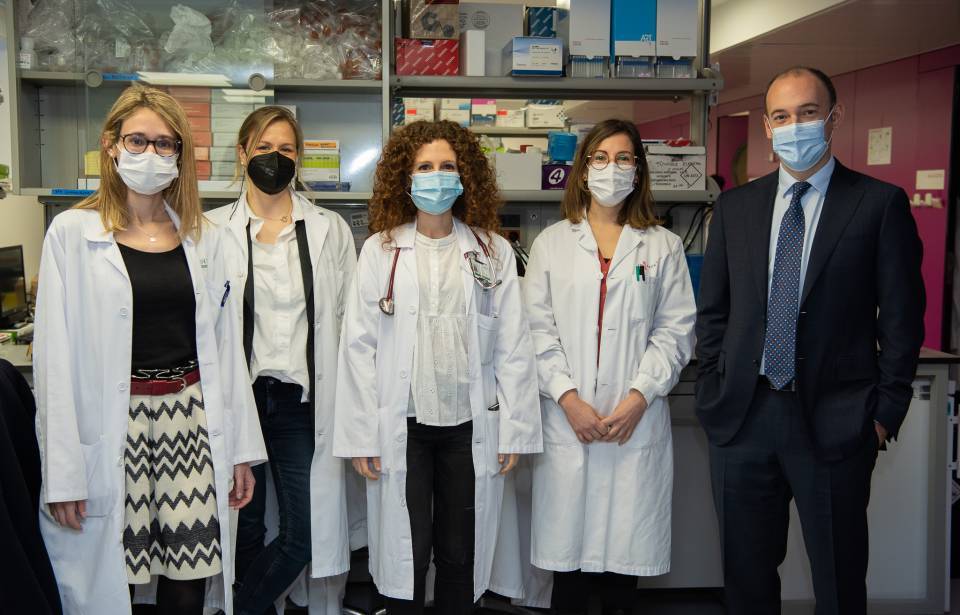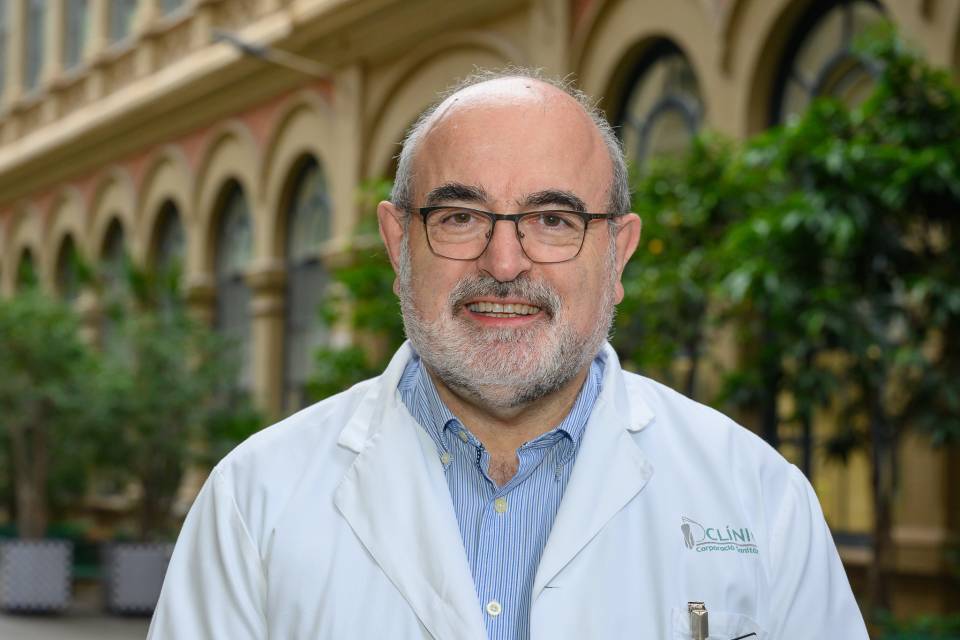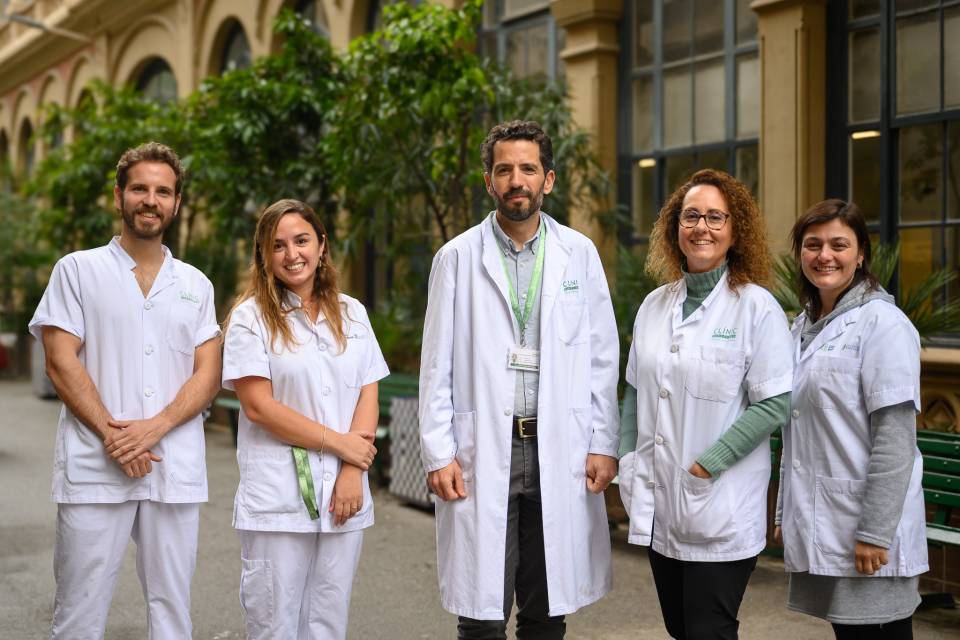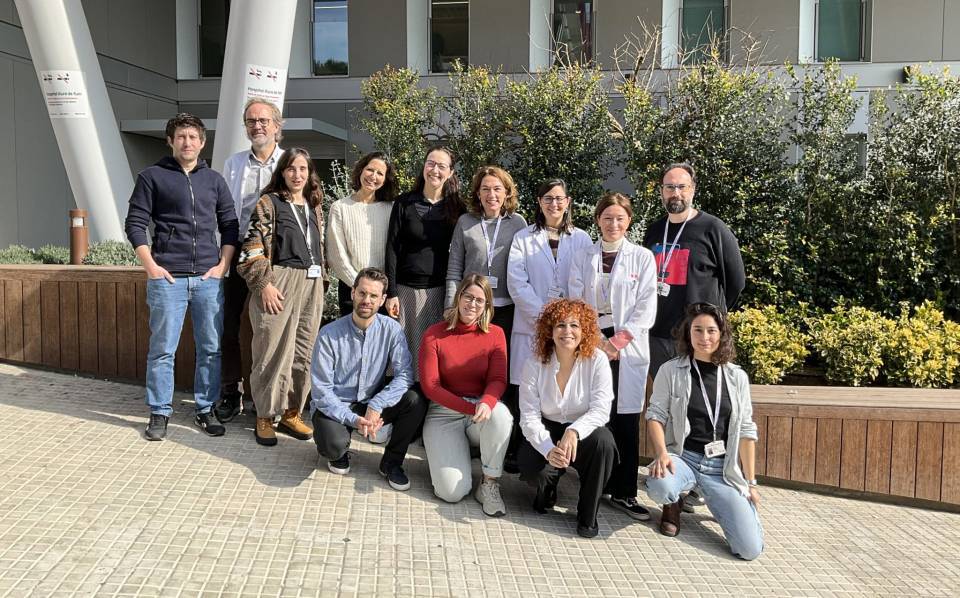Researchers at the Hospital Clínic-IDIBAPS Research Institute, the University of Barcelona and the SOLTI academic cancer research group have shown that the molecular classification of breast cancer, which divides it into four subtypes (Luminal A, Luminal B, HER2-enriched and Basal-like) is useful for predicting the benefits of treatment in patients with advanced hormone-sensitive breast cancer. This is the largest study to have shown the value of the biomarker, and the first to do so in the context of a CDK4/6 inhibitor like ribociclib.
The study, published in the Journal of Clinical Oncology of the American Society of Clinical Oncology (ASCO), was coordinated by Professor Aleix Prat, head of the Medical Oncology Service at the Hospital Clínic and of the IDIBAPS Translational genomics and targeted therapies in solid tumours group, professor in the Department of Medicine at the University of Barcelona, and president of SOLTI.
Breast cancer affects 2.3 million people and causes 571,000 deaths each year. Hormone-sensitive cancer represents 70% of all cases of breast cancer. When the disease is at an early stage, local treatment, chemotherapy and hormone treatment for 5-10 years have shown great long-term benefits in terms of survival. Nevertheless, around 20-40% of all patients end up developing metastasis during the follow-up period. In this context, survival is compromised and biomarkers and specific treatments are required.
Over the last few years, new therapies for advanced hormone-sensitive breast cancer have been incorporated, such as the introduction of new inhibitors of CDK4/6, a key protein in the cell cycle. “The recent introduction of CDK4/6 inhibitors such as ribociclib has improved the survival rates of patients with advanced hormone-sensitive breast cancer. However, this disease is clinical and biologically heterogeneous, and at least 4 molecular subtypes can be identified. Up until now, we were unaware of the real value of this molecular classification in the advanced hormone-sensitive disease", points out Aleix Prat.
Over the last 5 years, the line of research followed by Dr. Aleix Prat’s laboratory has allowed the biological heterogeneity of hormone-sensitive breast cancer to be described and has identified 4 molecular groups (Luminal A, Luminal B, HER2-enriched and Basal-like), with different prognoses and sensitivities to treatment. "The question we asked ourselves was how this biological classification behaved in advanced hormone-sensitive breast cancer", notes Aleix Prat. “Two previous studies led by our group pointed out that, among patients with advanced hormone-sensitive breast cancer treated with hormone therapy, the Luminal A subtype has the best prognosis, whilst the HER2-enriched and Basal-like subtypes have the worst prognosis. The Luminal B subtype, on the other hand, has a fair prognosis. In this context, it was necessary to validate these findings and, above all, to see the impact of the CDK4/6 inhibitors, since they are currently the standard treatment", he adds.
In the article published in the Journal of Clinical Oncology, the researchers analysed the expression of 152 genes in 1,160 patients with advanced hormone-sensitive breast cancer treated in 3 phase III clinical trials in the MONALEESA programme, which led to the approval of ribociclib by the public health authorities.
A total of 488 patients received hormone therapy alone, and 672 patients received the hormone treatment in combination with ribociclib. The Luminal A molecular subtype was the most frequent (47%), followed by the Luminal B (24%), the HER2-enriched (13%) and the Basal-like (3%). Compared with the Luminal A subtype, the risk of the disease progressing was higher in the rest of the molecular subtypes. For example, the risk of progression in the HER2-enriched and the Basal-like subtypes was 2 and 4 times higher compared with the Luminal A subtype. Finally, the researchers observed that all the molecular subtypes except for the Basal-like benefited from treatment with ribociclib.
"On the one hand, our study definitively validated prior observations about the prognostic value of the molecular classification. On the other, we showed for the first time the high clinical value of ribociclib in the HER2-enriched subtype, a highly aggressive group of tumours when treated with hormone therapy alone. Finally, our study makes it very clear that it is increasingly important to know the molecular subtype", concludes Aleix Prat.
Future studies will establish the predictive value of the molecular classification of hormone-sensitive breast cancer in other contexts. Specific examples may include the search for new targeted therapies for the aggressive HER2-enriched and Basal-like subtypes. Along these lines, the SOLTI cooperative group, presided over by Aleix Prat, is carrying out multicentre clinical trials for each of these groups, such as the TATEN trial or the ARIANNA trial, which are assessing innovative therapies such as immunotherapy, for example.
This study was funded by Novartis, the Carlos III Health Institute, the Breast Cancer Research Foundation, the Breast Cancer Now Foundation, the Government of Catalonia within the Peris Programme, the Fundació La Marató TV3, the European Horizon 2020 programme (RESCUER project), the Spanish Association Against Cancer Scientific Foundation (AECC), and the Save the Mama, Pas a Pas and Cáncer de Mama Metastásico associations.
Study reference:
Correlative Biomarker Analysis of Intrinsic Subtypes and Efficacy Across the MONALEESA Phase III Studies.
Prat A, Chaudhury A, Solovieff N, Paré L, Martinez D, Chic N, Martínez-Sáez O, Brasó-Maristany F, Lteif A, Taran T, Babbar N, Su F.
J Clin Oncol. 2021 Mar 26:JCO2002977. doi: 10.1200/JCO.20.02977.




